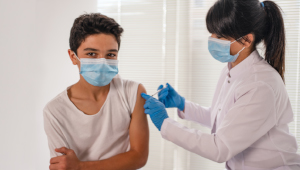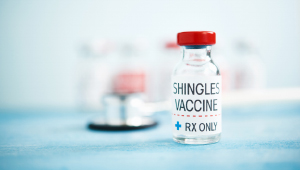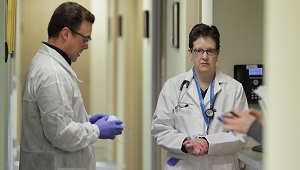Lisa A. Jackson, MD, MPH
Biography
Lisa A. Jackson, MD, MPH, is an internist and infectious disease epidemiologist who has conducted clinical and epidemiologic studies of vaccine safety and efficacy since 1991.
Dr. Jackson is the principal investigator (PI) of KPWHRI’s Vaccine and Treatment Evaluation Unit — one of 10 network sites that the National Institutes of Health (NIH) sponsors. In this role, she leads the phase 1 clinical trial of the COVID-19 vaccine co-developed by Moderna and NIH. Launched in March 2020, this trial was the first in the world to begin testing a COVID-19 vaccine. She is also leading the phase 3 clinical trials of the COVID-19 vaccines developed by Moderna and NIH and by Janssen Pharmaceutical Companies, part of Johnson & Johnson, at KPWHRI.
Additionally, Dr. Jackson serves as KPWHRI’s principal investigator in the Vaccine Safety Datalink Project (VSDP). Sponsored by the Centers for Disease Control and Prevention (CDC), VSDP conducts ongoing research on the safety of licensed vaccines in routine use.
Dr. Jackson has written more than 200 peer-reviewed publications and 14 book chapters. She is a past member of the Food and Drug Administration’s Vaccines and Related Biological Products Advisory Committee and the National Vaccine Program Office’s National Vaccine Advisory Committee.
After receiving her medical degree from the University of Virginia School of Medicine, in Charlottesville, Dr. Jackson earned her Master of Public Health (MPH) degree at the University of Washington (UW) School of Public Health. She completed her internal medicine residency training at the UW School of Medicine and served as an epidemic intelligence officer and preventive medicine resident at the CDC.
Research interests and experience
Vaccines & Infectious Diseases
Vaccine safety; COVID-19 vaccine safety and effectiveness; influenza vaccine effectiveness in the elderly; methodologic issues in vaccine effectiveness evaluations; pneumococcal polysaccharide vaccine effectiveness; pneumococcal conjugate vaccine immunogenicity in the elderly; epidemiology of E. coli bacteremia; epidemiology of community-acquired pneumonia
Recent publications
Jackson LA, Yu O, Heckbert SR, Psaty BM, Malais D, Barlow WE, Thompson WW. Influenza vaccination is not associated with a reduction in the risk of recurrent coronary events. Am J Epidemiol. 2002;156(7):634-40. PubMed
Jackson LA, Carste BA, Malais D, Froeschle J. Retrospective population-based assessment of medically attended injection site reactions, seizures, allergic responses and febrile episodes after cellular pertussis vaccine combined with diphtheria and tetanus toxoids. Pediatr Infect Dis J. 2002;21(8):781-786. PubMed
DeStefano F, Gu D, Kramarz P, Truman BI, Iademarco MF, Mullooly JP, Jackson LA, Davis RL, Black SB, Shinefield HR, Marcy SM, Ward JI, Chen RT. Childhood vaccinations and risk of asthma. Pediatr Infect Dis J. 2002;21(6):498-504. PubMed
Jackson LA, Austin G, Chen RT, Stout R, DeStefano F, Gorse GJ, Newman FK, Yu O, Weniger BG. Safety and immunogenicity of varying dosages of trivalent inactivated influenza vaccine administered by needle-free jet injectors. Vaccine. 2001;19(32):4703-9. PubMed
Dowell SF, Peeling RW, Boman J, Carlone GM, Fields BS, Guarner J, Hammerschlag MR, Jackson LA, Kuo CC, Maass M, Messmer TO, Talkington DF, Tondella ML, Zaki SR. Standardizing chlamydia pneumoniae assays: recommendations from the Centers for Disease Control and Prevention (USA), and the Laboratory Centre for Disease Control (Canada). Clin Infect Dis. 2001;33(4):492-503. PubMed
Jackson LA, Falls S, Yu O, George J, Pietrobon PJ, Rubanowice D, Froeschle J. Diphtheria antitoxin levels among children primed with a diphtheria and tetanus toxoids and acellular pertussis vaccine lot with a subpotent diphtheria toxoid component. J Infect Dis. 2001;183(11):1698-700. PubMed
Jackson LA, Grayston JT. Chlamydia pneumoniae (TWAR). In: Schlossberg D, ed. Current Therapy of Infectious Disease, 2nd Ed. St. Louis, Mosby - Year Book Inc., 2001: 481-483. PubMed
Jackson LA, Wang SP, Nazar-Stewart V, Grayston JT, Vaughan TL. Association of Chlamydia pneumoniae immunoglobulin A seropositivity and risk of lung cancer. Cancer Epidemiol Biomarkers Prev. 2000;9(11):1263-6. PubMed
Pellissier JM, Coplan PM, Jackson LA, May JE. The effect of additional shots on the vaccine administration process: results of a time-motion study in 2 settings. Am J Manag Care. 2000;6(9):1038-44. PubMed
Jackson LA, Keene WE, McAnulty JM, Alexander ER, Diermayer M, Davis MA, Hedberg K, Boase J, Barrett TJ, Samadpour M, Fleming DW. Where's the beef? The role of cross-contamination in 4 chain restaurant-associated outbreaks of Escherichia coli 0157:H7 in the Pacific Northwest. Arch Intern Med. 2000;160(15):2380-5. PubMed
News

Vaccine program recruiting volunteers in Seattle area
KPWHRI’s vaccine registry was the first to enroll participants in a clinical trial of a COVID-19 vaccine.
News

Clinical trial will evaluate mpox vaccine for adolescents
The NIH-sponsored trial will help inform decisions about vaccine approval for 12- to 17-year-olds.
Research

New study confirms safety of shingles vaccine
KPWHRI researchers analyzed data from more than 640,000 vaccine doses to understand risk of severe reactions.
Research

‘Fighting back’ against COVID-19: Remembering a historic trial
Lisa Jackson, MD, MPH, Kaiser Permanente Washington senior investigator, recounts the genesis of a groundbreaking vaccine.



